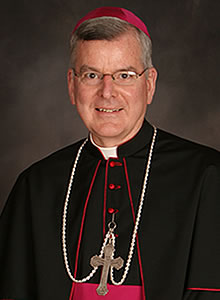By reason of the knowledge, competence, or pre-eminence which they have, the laity are empowered—indeed sometimes obliged—to manifest their opinion on those things which pertain to the good of the Church. If the occasion should arise, this should be done through the institutions established by the Church for that purpose, and always with truth, courage, and prudence, and with reverence and charity toward those who, by reason of their office, represent the person of Christ.
–Vatican Council II, Dogmatic Constitution on the Church, no. 37
To assist the faithful when controversies arise, the Church has given certain procedures that should be used. These procedures respect the “institutions established by the Church,” and are provided for in the Code of Canon Law. There are three types of procedures that can be used: judicial, administrative, and pastoral. In all circumstances, the Church favors pastoral means as a way of resolving disputes (canons 1446, 1676, 1713-1716, 1733). Judicial and administrative recourse should only take place when pastoral means have been exhausted, or the nature of the matter requires immediate and formal action.
Guidelines that apply to every step
A. Pray. Seek the Wisdom of God. Follow the example of the saints and seek their intercession.
B. Know the issue. Study Church documents and other writings on the topic. Our FAITH FACTS are a helpful starting point. They provide relevant citations from Church documents and a list of sources that can be used for further study. The National Conference of Catholic Bishops (NCCB) has various offices that can provide information on their topic of expertise. Its outreaches include offices on Liturgy, Doctrine, and Canonical Affairs. Information from one of these offices can be obtained by writing to the following address: (Name of the Office), National Conference of Catholic Bishops, 3211 4th St., N.E., Washington, DC 20017-1194. Use this information to objectively and prayerfully consider the statements made by those you are in conflict with. The Apostolic Nuncio also employs a staff to help answer questions. The address is below.
C. The Church presumes good faith unless otherwise proven. You must do the same, always acting with a charitable, objective, and concise manner. A contrary approach may jeopardize an acceptable solution.
D. Maintain objective, written records of all meetings. Provide a copy of these records to everyone present at the meeting. Keep copies of all written materials that pertain to the issue, including letters and decrees.
E. The Church favors the principle of subsidiarity. That means issues are to be resolved at the lowest level possible. Always exhaust the possibility of resolution at the lowest level before moving to the next. Do not involve people who are not a part of the solution.
F. During your first contact with higher authority, make him aware of the materials available that pertain to the issue. If possible, provide him with copies of these materials during this first contact. Without these materials, he cannot objectively consider your request.
Pastoral Procedures
A. As a general rule at each level noted below, allow at least two weeks and no more than 30 days for the person you contact to respond to your request before contacting them again. After contacting them a second time with no response, move to the next level.
B. Contact the person with whom you have conflict. Discuss your concerns and seek a mutually agreeable resolution. Do not hesitate to meet more than once. Only when it becomes evident that no mutual solution will be reached, move to the next level of authority (Mt. 18:15-17).
C. If the first step does not provide a resolution, contact the immediate superior of the person you are in conflict with. If the person is an employee of the parish, approach the pastor. If the person is a teacher, contact the principal before approaching the pastor.
D. If the person is the pastor, or if you have already contacted the pastor without success, approach the dean of your deanery once. He does not have direct authority over the pastor in most circumstances, but he can act as mediator, and in limited instances he can directly intervene (c.f.: canons 553-555).
E. If the dean is unable to help, find out if your diocese has an office of mediation. The purpose of this office is to assist the faithful in finding agreeable solutions to disputes. The dean can direct you to the office of mediation, if one is available.
F. If the office of mediation is unable to assist you in obtaining an agreeable solution, or if your diocese does not have an office of mediation, approach the bishop or one of his vicars according to diocesan protocol. In larger dioceses, particularly those with an archbishop, it is proper to approach a vicar before approaching the bishop. All dioceses have a vicar general. The larger dioceses also have episcopal vicars, who are often bishops. These vicars have direct authority over the priests entrusted to their care. After approaching the vicar, seek the assistance of the bishop himself.
G. If the bishop is unable to help, contact the archbishop of your ecclesiastical province once. The archbishop does not have direct authority over the bishop, but he does have an obligation to help resolve disputes and report abuses to the Holy See (canon 436).
H. After contacting the archbishop without success, contact the Apostolic Nuncio at the following address: Apostolic Nuncio, 3339 Massachusetts Ave. N.W., Washington, DC 20008.
I. If the above approaches prove fruitless, contact the Holy See. If it becomes necessary to take this final step, proper procedures must be used and the matter directed to the proper office of the Holy See, or your request will not be addressed. To obtain assistance in taking this step, contact Information Services at (800) 693-2484. If we are unable to help you directly, we will refer you to competent persons who can.
Judicial and Administrative Procedures
A. The Church has the exclusive right to judge cases concerning spiritual matters or connected with spiritual matters, particularly those cases that involve violations of ecclesiastical laws, the culpability of sin, and the imposition of ecclesiastical penalties (canon 1401).
B. The purposes of judicial trials within the Church are: to prosecute or vindicate rights, declare juridic facts (eg: whether a marriage took place), and impose or declare penalties (canon 1400§1).
C. The purpose of administrative recourse is to settle controversies that arise from acts of administration within the Church (canon 1400§2).
D. Both judicial and administrative procedures require specific steps in a particular order. Certain time limits must be followed. If the necessary steps or time limits are not followed, a case can be thrown out.
E. Judicial trials are handled by the diocesan tribunal. Administrative procedures begin by contacting the person whose act caused the controversy. Further appeals must follow the designated procedure.
Canonical advocacy is highly recommended if you need to use judicial or administrative procedures. Catholics United for the Faith does not provide canonical advocacy, but we can refer you to competent persons who do. If you are uncertain as to what course of action to follow, call Information Services (800) 693-2484, and we will assist you in determining the best way to proceed.
Important Note: If a problem remains unresolved despite following this protocol, resist the desire to speak uncharitably, which will only aggravate the problem. Offer any imperfections and distractions as a sacrifice in union with our Eucharistic Lord for your salvation and that of the Church. Maintain respect for both the person and office of the sacred pastors of the Church, for they act in the Person of Christ. As Mother Teresa once said, we are called to be faithful, not successful. It is this genuine fidelity to Christ and His Church that is most effective in fostering authentic renewal.
The Hierarchy of the Catholic Church





 A serious threat to religious freedom
A serious threat to religious freedom













